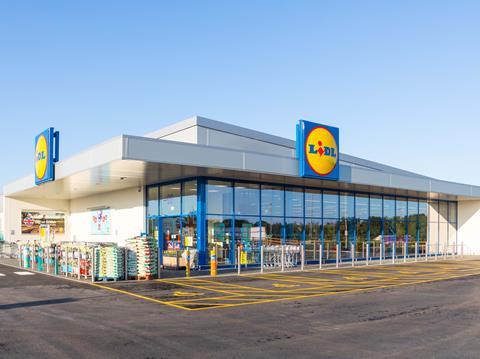Things are looking more positive for consumers’ budgets, the latest Kantar figures show
Grocery price inflation has fallen to its lowest level in almost two years, and supermarkets are offering further relief to shoppers with a series of price-cutting and promotional measures.

New figures from Kantar show that grocery price inflation has fallen to 5.3 per cent, marking the lowest rate since March 2022 and a decrease of 1.5 percentage points from January. Take-home grocery sales grew in value by 5.1 per cent for the four weeks to 18 February.
Tom Steel, strategic insight director at Kantar, said: “Things are looking up for shoppers this February. Consumers have been navigating a grocery inflation rate of more than 4 per cent for two years now, so this latest easing of price rises is especially welcome.
“Though there’s been lots of discussion about the impact the Red Sea shipping crisis might have on the cost of goods, supermarkets have been pulling out all the stops to keep prices down and help people manage their budgets.
This month, Morrisons became the latest retailer to launch a price-match scheme with Aldi and Lidl, after Asda made the move in January.
Promotions have accelerated in the past month after a slowdown in the immediate aftermath of Christmas. Consumers’ spending on offers increased by 4 per cent in February, worth £586 million more than the same month in 2023.
Kantar noted that Sainsbury’s and Iceland’s efforts paid off in particular, and they were the only retailers to attract more shoppers through their doors.
The battle between supermarkets’ own-label lines and brands also remains fierce, Steel said, with own-label nipping ahead this month and growing sales by 5.5 per cent versus branded products at 5.3 per cent.
Lidl comes out on top
Lidl was the only retailer to achieve double-digit growth in the last three months, with sales up by 10.9 per cent over the 12 weeks to 18 February, making it the fastest-growing grocer for the sixth month running.
It now holds a 7.5 per cent share of the market, an increase of 0.4 percentage points. Fellow discounter Aldi also grew ahead of the market, boosting sales by 5.7 per cent and maintaining its 9.4 per cent share.
Sainsbury’s and Tesco increased their share of the market by 0.4 and 0.3 percentage points respectively. Sainsbury’s now holds a 15.6 per cent share, with sales up 7.6 per cent. Tesco’s sales grew by 6.2 per cent, pushing Britain’s largest grocer to a 27.6 per cent share of the market.



